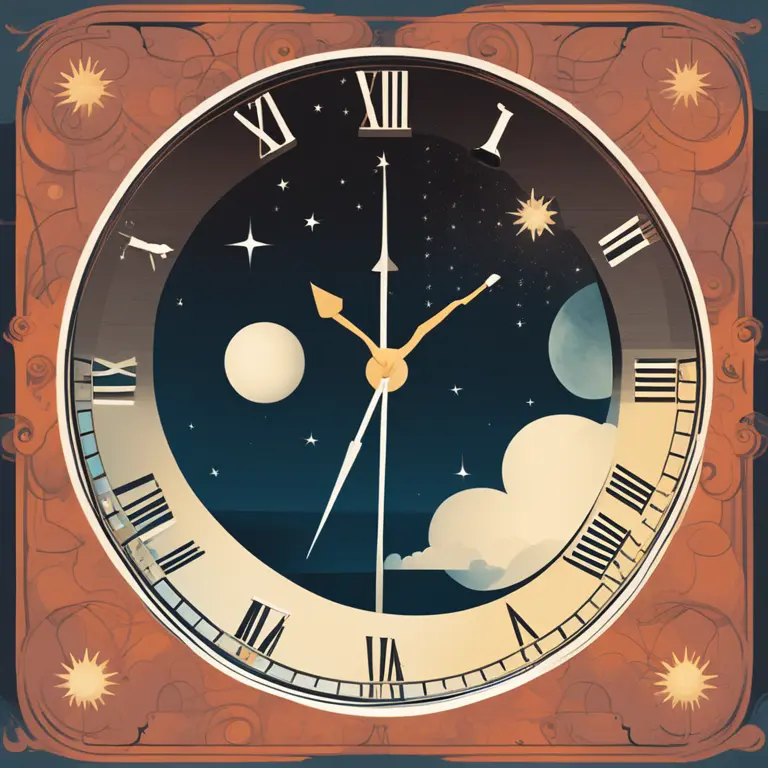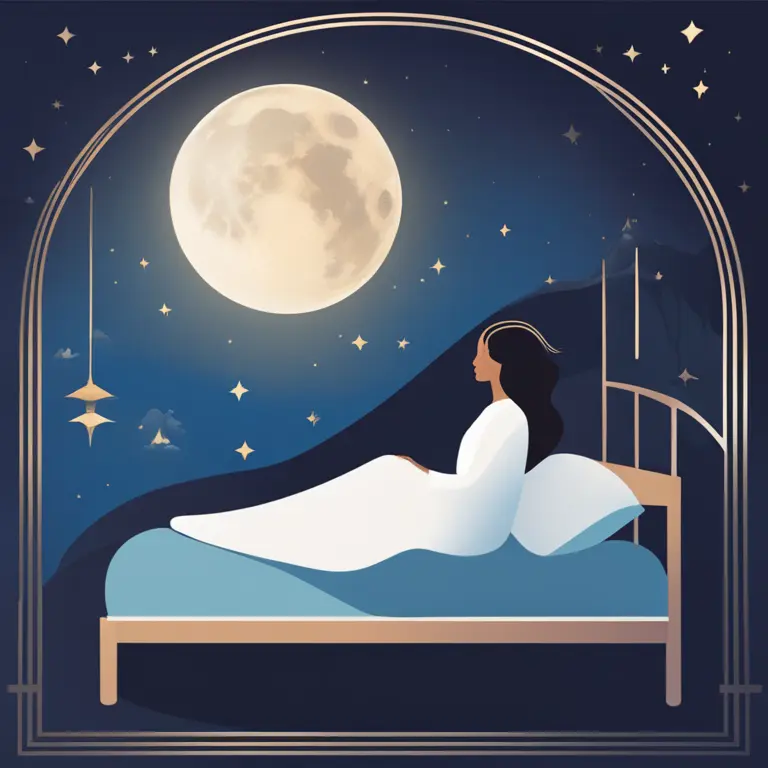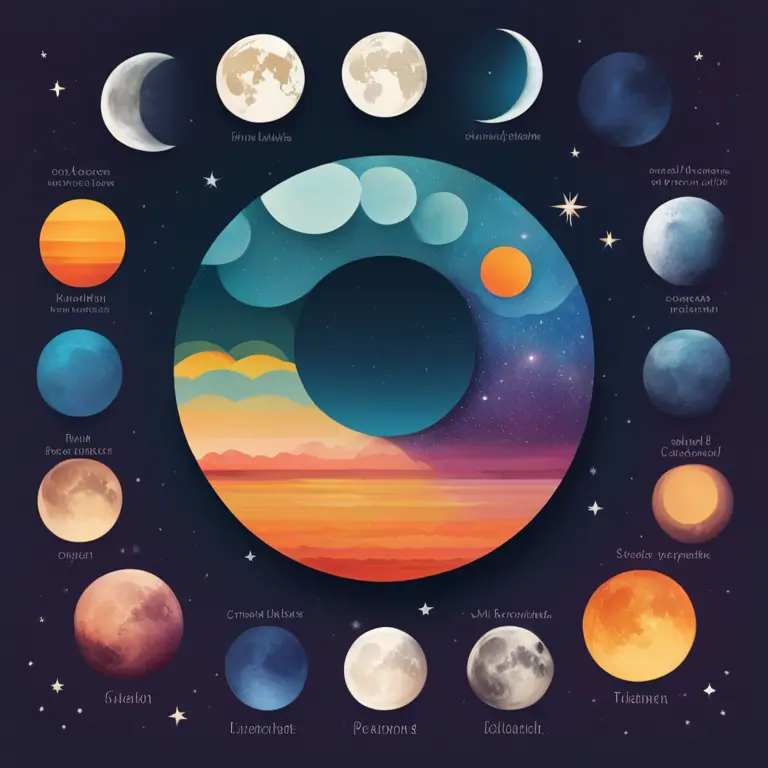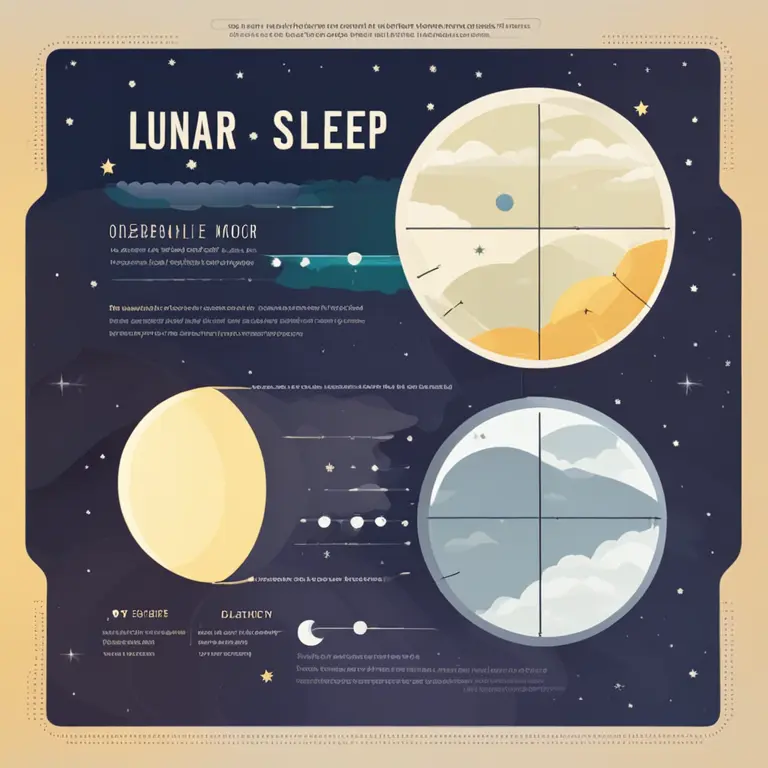
Moon Cycles and Sleep Patterns: Night Sky's Influence
Discover how the ever-changing moon phases might affect your sleep quality and pattern, delving into lunar wisdom and modern sleep science.
article by Priya Deshmukh
Lunar Phases and Human Sleep
Have you ever noticed a change in your sleep quality during a full moon or a new moon? This article delves into the intriguing connection between the lunar cycle and how we sleep. Ancient civilizations have been observing the moon's impact on life for centuries, which includes affecting the tides and agricultural patterns. Recent studies have begun to shed light on how these celestial movements could also be influencing our nightly rest, perhaps owing to our evolutionary past or subtle changes in the environment.

The Science Behind Lunar Sleep Cycles
In the realm of sleep science, researchers have been exploring the potential impact the moon has on our internal biological clocks, or circadian rhythms. The moon's light, specifically during the full moon phase, has been studied for its effects on melatonin production—a hormone that regulates sleep. There's growing evidence that suggests we may experience reduced levels of melatonin during a full moon, which can lead to difficulties in falling asleep, or a less restful night. However, this area of study remains relatively new, with much still to be discovered.

Astrology and Lunar Rhythms
Moving from the realm of science to astrology, the lunar cycle is considered to hold significant sway over emotional and psychic energies according to astrological thought. Each phase of the moon is said to hold different potentials for personal growth and reflection. The full moon, for example, is traditionally associated with heightened emotions and intuition, which might lead to disturbances in one's sleep as the mind becomes more active. In contrast, the new moon is often considered a time for inward reflection and calm, theoretically conducive to a better night's sleep.

Practical Tips for a Lunar-Aligned Slumber
Whether you're a firm believer in celestial influences or simply curious about the moon's potential effect on your sleep, there are practical steps you can take to align your sleep habits with lunar rhythms. Consider darkening your room more effectively during the full moon. Embrace the new moon as an opportunity to set sleep intentions or begin a new sleep-related habit. Keeping a sleep diary can also help you to identify patterns and perhaps even correspondences with the lunar phases over time. This mindfulness can lead to a more natural and restful sleep pattern.

Technological Aids for Lunar Sleep Observations
In an age where technology assists us in enhancing our quality of life, various apps and devices now offer features to track your sleep during different moon phases. Many of these tools provide insights that can help correlate your sleep quality with the lunar cycle. By understanding your unique sleep patterns, you can make informed adjustments to your bedtime routine, which may include being more mindful of the moon's phase or utilizing sleep aids that account for its changes.
Lunar Cycles Looking Forward
As we head into 2024 and beyond, consider taking note of the moon's phases and its potential effects on your sleep. Astrological forecasts often mention the new and full moons as powerful moments in time, and paying attention to your body's response during these periods can be enlightening. Whether or not you find a definitive pattern, tuning in to natural cycles like the ebb and flow of the moon offers a connection to the larger cosmos, which can be a comforting and grounding practice in our fast-paced lives.
Published: 1/19/2024
Modified: 1/19/2024
More predictions
Come back here soon to learn more about yourself and your future


Between Moon Phases and Soulmate Connections
Discover the mystical link between lunar cycles and soulmate encounters. This article delves into the celestial influence on love and relationships.


About Moon Phases & Relationship Dynamics
Explore how the changing phases of the moon can influence your connection with your boyfriend and potentially impact your relationship.


The Nighttime Moon Phase: When It’s Visible to Observers
Learn which moon phase graces the night sky and discover its unique characteristics and impact on astrology and personal biorhythms.